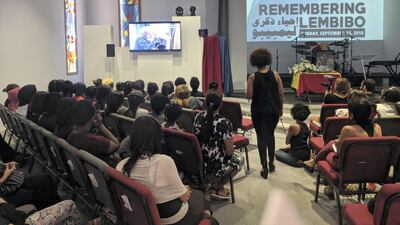In 2008, Ethiopia introduced a ban on workers seeking employment in Lebanon after a series of mysterious deaths of domestic workers. A decade on, despite repeat bans and complaints of mistreatment, Ethiopians continue to go to Lebanon, where they make up about half of all domestic workers. This month, the issue was raised again when a 26-year-old Ethiopian domestic worker, known as Lembibo, died.
While questions remain over the series of events culminating in the discovery of her body in the swimming pool of her recruitment agent, the case exposes the failures of the kafala system, which legally binds domestic workers to their sponsors. Critics say kafala enables exploitation by denying them a way out of their employment or avenues of recourse when things go wrong. Some workers have their passports and documents taken from them and even experience physical and sexual abuse.
As in many countries across the Middle East, thousands of Ethiopians arrive in Lebanon each year with the promise of a secure job and the chance to achieve a better life for themselves and their families. For a minority, those dreams quickly turn to nightmares as their employers deny them basic rights.
Organisations representing migrants claim as many as two domestic workers die each week, mostly by committing suicide or jumping from balconies to escape.
Of course, many workers are treated well by their employers and mistreatment is not a strictly Lebanese problem. Indeed, in March a Kuwaiti court sentenced a couple to death in their absence for murdering their Filipina maid and placing her corpse in a freezer. But the issue has repeatedly arisen in Lebanon where 138 domestic workers died between January 2016 and April 2017, leading to complaints about endemic racism.
The Lebanese government should act without delay to stamp out abuses and to severely punish those who flout their duty of care to those in their guardianship.
The general director of the Ministry of Labour, Georges Ayda, said the situation was not perfect but claimed that without the kafala system, workers would not respect their contracts. Not only does such a mentality denigrate workers themselves but it threatens to perpetuate abuse. The protection of vulnerable people, far from home, should always be paramount.

